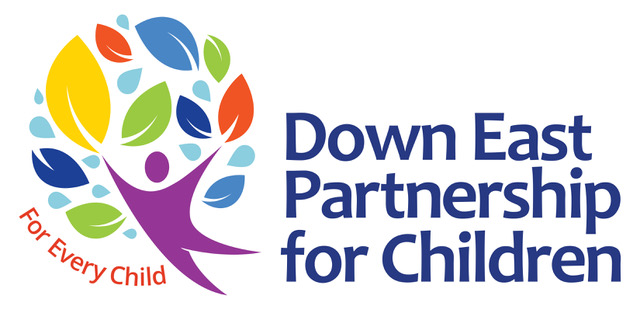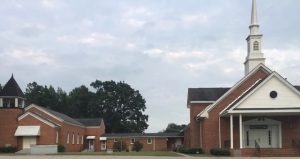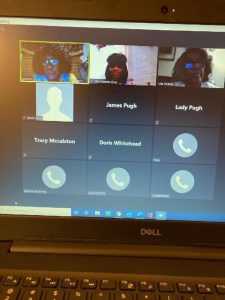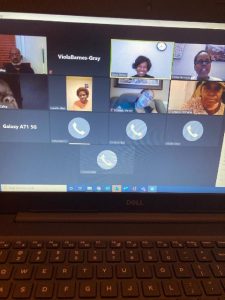
Can we all agree that this last year has been HARD?!! The year of 2020 was tough for so many reasons. We ache with those who suffered with crippling illness or untimely loss of loved ones. Our hearts go out to many who struggled financially with job loss, or endured racial discrimination… It’s so easy, understandably so, to let yourself take a step back and just ride the waves. … and sometimes this is exactly what we need to do to survive! It takes a very special group of individuals, however, to rise above and see the need to move forward, even in these unprecedented times. Down East Partnership for Children (DEPC) in Rocky Mount, North Carolina, is one of these remarkable group of individuals. It is with pleasure that we take this time to highlight what they accomplished by taking the 9-week Faithful Families courses VIRTUAL!
The nine-week virtual Faithful Families program was a team effort, orchestrated by Ms. Viola Barnes Gray. During the start of the COVID-19 pandemic, Ms. Viola contacted team members and posed the question, How could the Faithful Families classes could be conducted, while also complying with state-mandated stay at home order? The virtual brainstorming meetings began and each member of the team was presented with a challenge to overcome and carry out.
 The first challenge to overcome was recruitment. Down East Partnership for Children is made up of a network of 25 plus faith communities (12 previously completed the 9-week Faithful Families curriculum), these pre-established relationships were critical during the recruitment phase, especially with the lack of social interaction during the COVID19 pandemic. Several conference calls and zoom sessions with church leadership were conducted to introduce the concept of Virtual Faithful Families Eat Smart Move More Nutrition and Physical Education program to 2 churches. Many clergy were very interested in a safe way to get their congregations positively engaged in a program that would inspire and motivate, especially during the challenges presented by the pandemic. Soon after recruiting the two faith communities, a working relationship needed to be established between the clergy, facilitator, and lay leaders. … and because of the stay-at-home orders, this, too needed to be done virtually!
The first challenge to overcome was recruitment. Down East Partnership for Children is made up of a network of 25 plus faith communities (12 previously completed the 9-week Faithful Families curriculum), these pre-established relationships were critical during the recruitment phase, especially with the lack of social interaction during the COVID19 pandemic. Several conference calls and zoom sessions with church leadership were conducted to introduce the concept of Virtual Faithful Families Eat Smart Move More Nutrition and Physical Education program to 2 churches. Many clergy were very interested in a safe way to get their congregations positively engaged in a program that would inspire and motivate, especially during the challenges presented by the pandemic. Soon after recruiting the two faith communities, a working relationship needed to be established between the clergy, facilitator, and lay leaders. … and because of the stay-at-home orders, this, too needed to be done virtually!
Becoming familiar with the needed technology was a reoccurring struggle throughout the nine weeks. For many, learning new technology was daunting, overwhelming, and frustrating. Viola, program staff and the Faithful Families Consultant first had to become familiar with holding Zoom meetings and conducting all planning meetings either virtually on Zoom, or over the phone. When thinking about the cooking demonstrations, it was soon realized that they, too, needed to be pre-recorded and uploaded. Many of the congregations consisted of elderly folks who had very little computer experience and needed step-by-step instructions in order to complete basic computer functions. When this occurred, the lay leader or pastor would typically call the individual and talk them through the process on the phone. When connecting to the Internet was not possible, a call-in phone line would be used. These individuals could not see videos, nor could the facilitators see their facial expressions and jump in to help when needed, but they were still able to participate! The challenges with technology continued and ranged from computer compatibility issues, to uploading recordings/program documents, to Internet connection discrepancies.
learning new technology was daunting, overwhelming, and frustrating. Viola, program staff and the Faithful Families Consultant first had to become familiar with holding Zoom meetings and conducting all planning meetings either virtually on Zoom, or over the phone. When thinking about the cooking demonstrations, it was soon realized that they, too, needed to be pre-recorded and uploaded. Many of the congregations consisted of elderly folks who had very little computer experience and needed step-by-step instructions in order to complete basic computer functions. When this occurred, the lay leader or pastor would typically call the individual and talk them through the process on the phone. When connecting to the Internet was not possible, a call-in phone line would be used. These individuals could not see videos, nor could the facilitators see their facial expressions and jump in to help when needed, but they were still able to participate! The challenges with technology continued and ranged from computer compatibility issues, to uploading recordings/program documents, to Internet connection discrepancies.
Since all the cooking demonstrations were now needing to be done virtually, this added layers of complexity to the preparations that were needed to be completed before the classes began. All dishes needed to be cooked twice, once so the participants could see a sample of what the finished dish should look like, and a second time for the actual cooking demonstration. In preparation for cooking the dishes, the program staff had to tackle the difficult task of grocery shopping during a pandemic. It was a definite process to coordinate the pick-up and distribution of the checks needed to purchase food for the weekly food demonstration classes. Businesses were closed and social distancing protocols were in place which made this process all the more difficult. Frequently, multiple checks were needed to be picked up and used at one time. The grocery shelves were often depleted; the struggle was real as DEPC program Staff/Faithful Families Facilitator Donia Simmons, and Gwen Shaw, Faithful Families Consultant/Facilitator realized that it would not be as easy as driving to the grocery store and picking the needed ingredients off the shelf. This process was often labor intensive and took time and patience.
 Gwen Shaw, a dedicated community partner and Faithful Families Consultant with DEPC for several years recounts her struggle as she remembers soliciting her husband to assist by giving him recipes and then they would both shop for the ingredients. She laughed as she told us that he soon learned to read labels and shop as an informed consumer! Complexities also exhibited themselves at the cash register. Checks payable to a grocery store often caused confusion as non-DEPC folks presented the checks for payment. Also, the fact that there were sometimes a large amount of food items, and that often more than one check needed to be processed at one time, caused delays at the register. The cooking demonstrations needed to be recorded by program staff and later uploaded to the computer and shown through Zoom. Because of the stay-at-home orders, the program staff either had to employ a family member to do the recording, or they had to record the demonstration by themselves through a home laptop or phone camera.
Gwen Shaw, a dedicated community partner and Faithful Families Consultant with DEPC for several years recounts her struggle as she remembers soliciting her husband to assist by giving him recipes and then they would both shop for the ingredients. She laughed as she told us that he soon learned to read labels and shop as an informed consumer! Complexities also exhibited themselves at the cash register. Checks payable to a grocery store often caused confusion as non-DEPC folks presented the checks for payment. Also, the fact that there were sometimes a large amount of food items, and that often more than one check needed to be processed at one time, caused delays at the register. The cooking demonstrations needed to be recorded by program staff and later uploaded to the computer and shown through Zoom. Because of the stay-at-home orders, the program staff either had to employ a family member to do the recording, or they had to record the demonstration by themselves through a home laptop or phone camera.
Taking time to make sure things were in order before the sessions started was critical to the success of the Faithful Families classes. There was a facilitator review at the beginning of each session. Facilitators were also responsible for taking notes at the beginning of the session and taking note of all the changes that needed to be made before the next session. Even in a virtual format, everyone was able to be involved and were able to share strategies or healthy living and self-care. Throughout the sessions a great level of trust was built, along with creating a very safe environment for people to have safe conversation. The classes were kept to an hour in length and even though all participants were joining remotely, physical activity was still incorporated into the sessions as though everyone was together at the church. It was amazing to see the participants rise above. Gwen commented, “I really enjoyed virtual sessions. It was safe, and from the comfort of my own home… I gained friends and helped someone make a change in his or her life.” It was clear that the participants enjoyed the classes as well, evidenced from the questions that were asked during the class and the feedback from the church members. Participants responded to the recipes and shared their experiences cooking the dishes at home. Recipe tips were shared, along with likes and dislikes. Donia Simmons, DEPC’s Ready Communities Specialist and Faithful Families Facilitator commonly said during the class, “Small practices make big impact!” Participants shared how their drinking and eating habits had changed and more exercise was being done. Notes were being taken during class and participants were ready with questions for the next session. In all, 28 members participated over the 9-week course with more than 70 plus other members receiving healthy tips at the two churches as well.
 It was incredible to see what was accomplished throughout the community in response to the knowledge gained during these classes! The members took action and are now reaping the rewards! Walking trails were created, bible study conference calls were initiated, and church leadership began making “healthy tips” announcements during their virtual worship services. As church doors closed, recipes, Chop Chop magazines, and healthy resource bags were passed out in parking lots. The consumption of water increased among members as the sugary drinks decreased. More people began reading food labels and buying healthier foods. Way to go EVERYONE!!!!
It was incredible to see what was accomplished throughout the community in response to the knowledge gained during these classes! The members took action and are now reaping the rewards! Walking trails were created, bible study conference calls were initiated, and church leadership began making “healthy tips” announcements during their virtual worship services. As church doors closed, recipes, Chop Chop magazines, and healthy resource bags were passed out in parking lots. The consumption of water increased among members as the sugary drinks decreased. More people began reading food labels and buying healthier foods. Way to go EVERYONE!!!!
We know that so many sacrificed during the pandemic and heroic efforts were taken by numberless people to help others. We are grateful to all of you! We are thankful for the incredible work done by Down East Partnership for Children! You rose above what was expected and are an inspiration to many. Way to go!!
Make sure to look for a webinar in September to learn more about how the Down East Partnership implemented virtual classes. More information coming soon!
